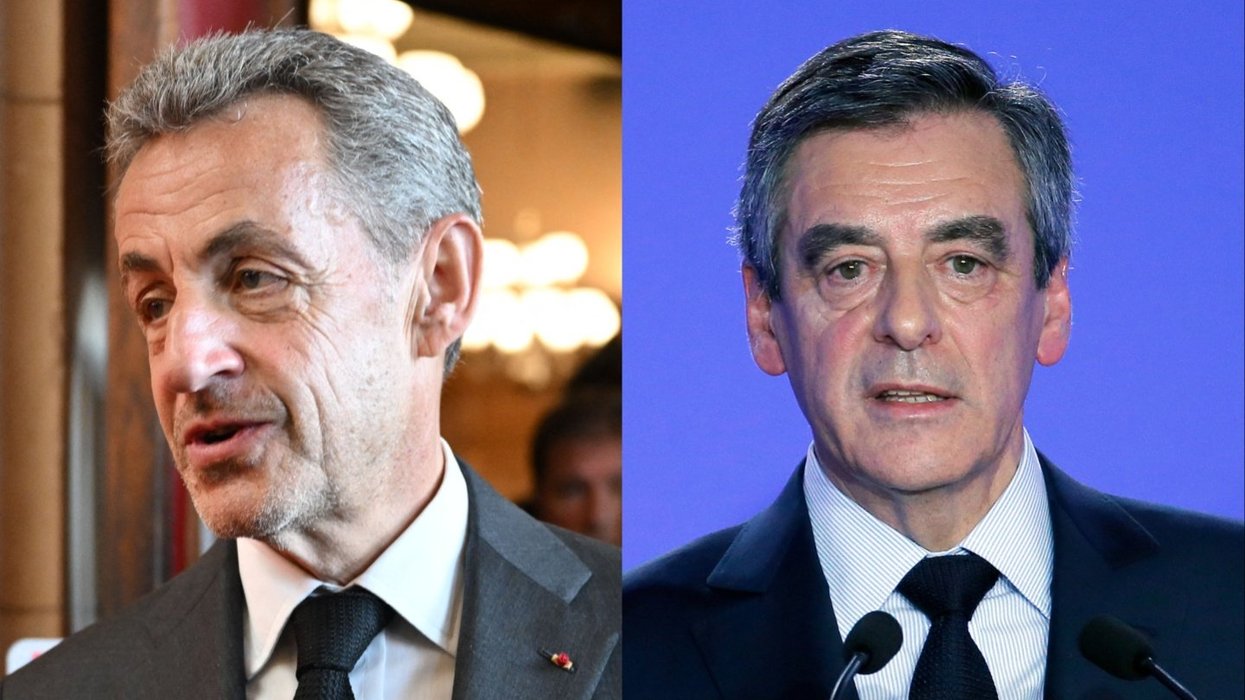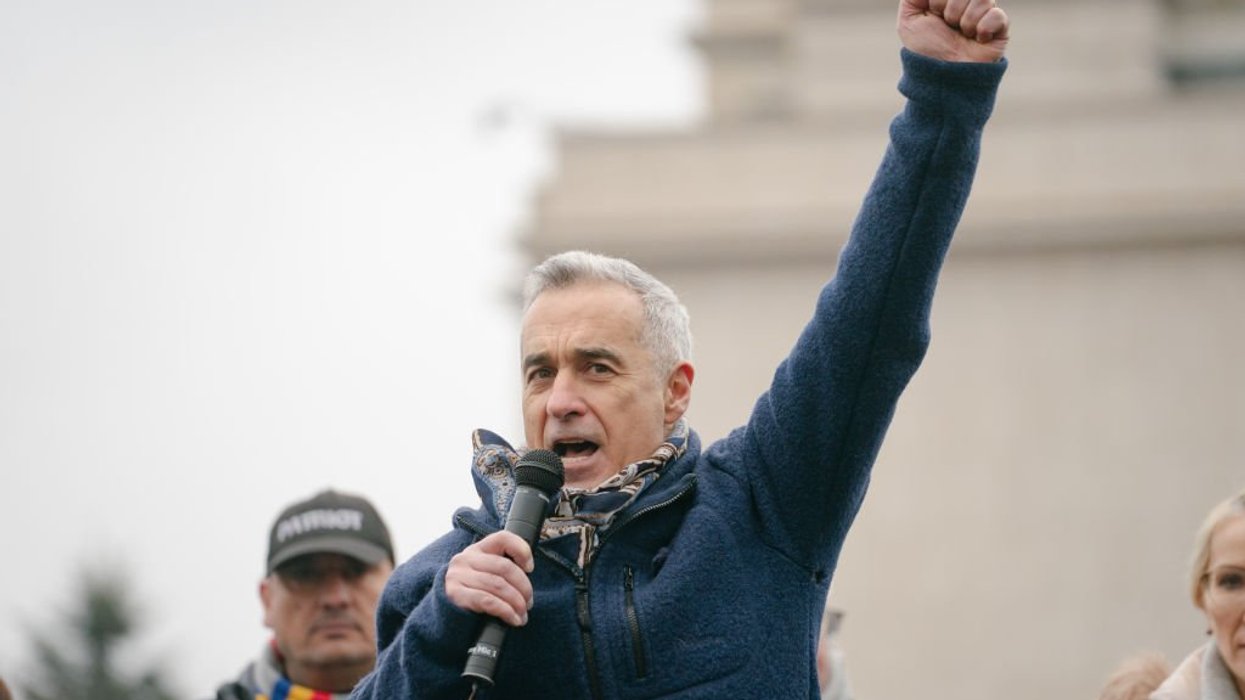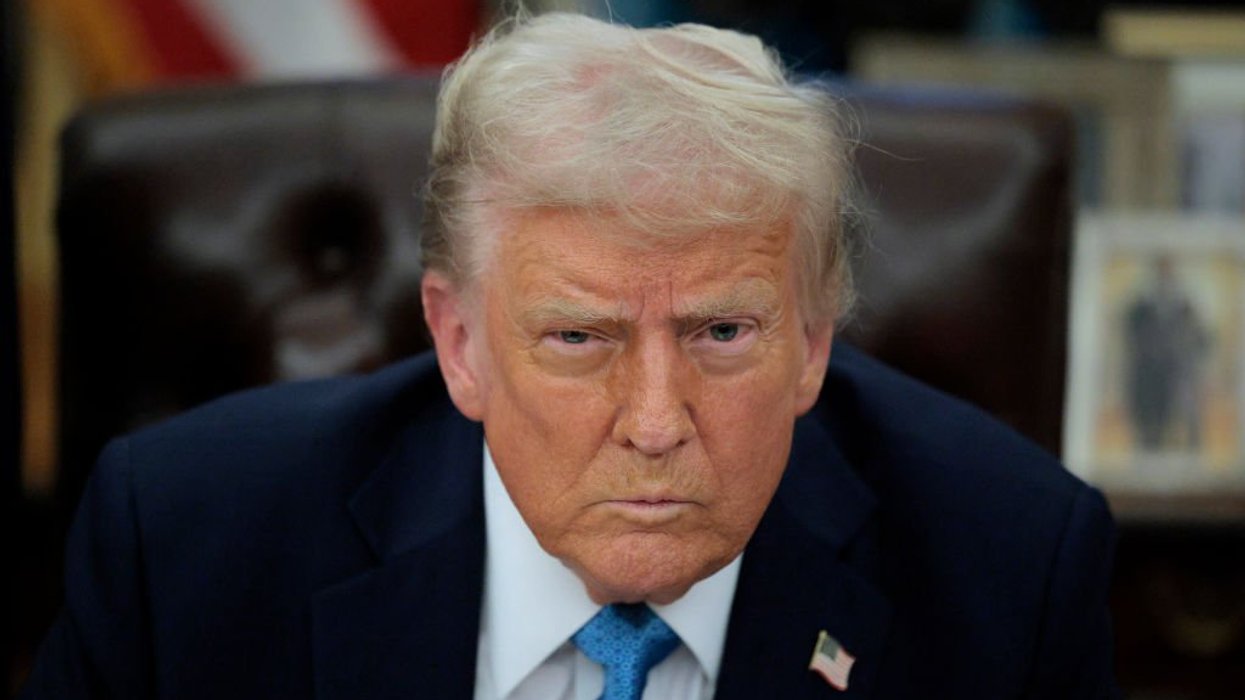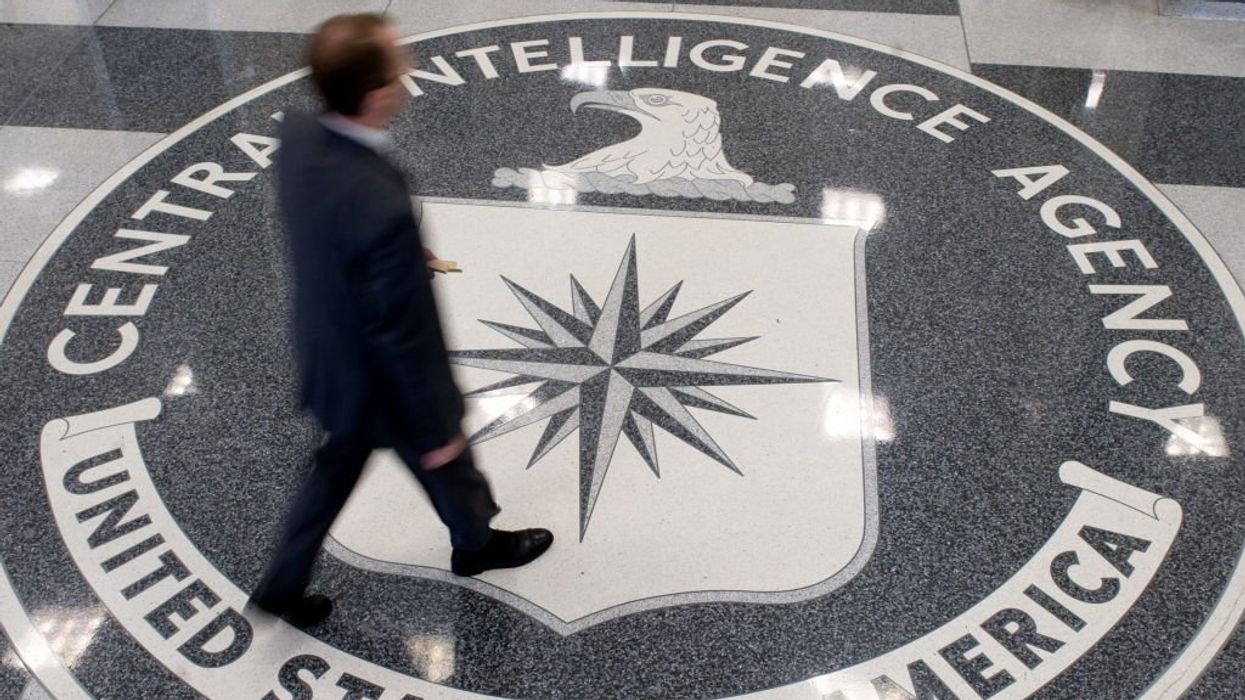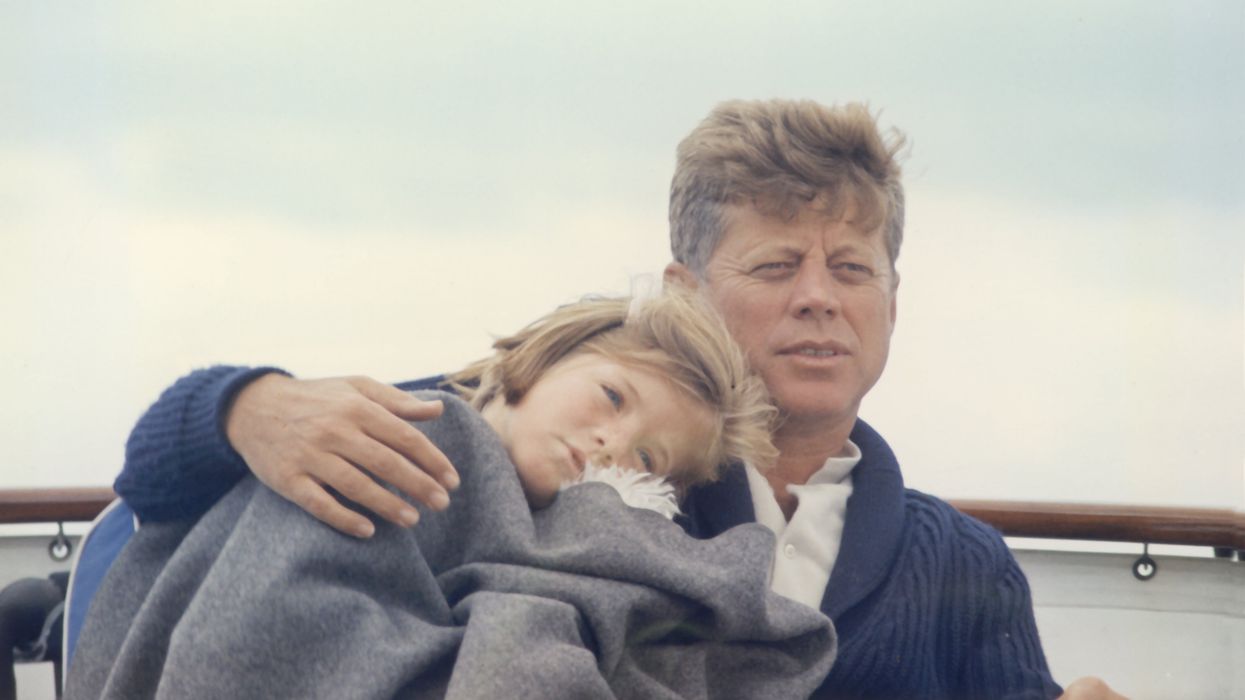Trump rallies officially begin with a prayer, spoken by some local clergyman. That day, the pastor seemed giddy and nervous as he strolled down the long long red-carpeted walkway. By the time he introduced himself, he had found composure.
As the prayer was about to begin, a man on the south side of the arena shouted, "Don't forget about Jesus."
He said it with conviction, as if didn't realize the entire arena was about to join in prayer, an act that signifies the intentional remembrance of Jesus. Either way, I assume that made the Good Lord happy.

Then, the prayer, a dialogue with God and Jesus, and the Holy Spirit also. So I bowed my head. And in the breathy pauses between words, in each brief, perfect, angelic silence, I could hear journalists clacking at their MacBooks.
Good thing they didn't accept me as one of their own, or else I would sever all ties with those blasphemers.
*
The arena was cozy and drab like a decaying small-town gymnasium. It had that sweat odor buried in the walls. Wrestling tournaments. Basketball. Today would not be its first circus. Conventions. Trade shows. Conferences. The stench of past-due.The kind of place that had clearly held tons of indoor rodeos, so add the smell of dirt and livestock.
And third-rate sports teams nobody actually cares for, also known as the Bayou Beast indoor football team, since you really have to know. And probably some no-name musicians. And if I had to guess, the odd wedding or high school prom or reunion or mayor's funeral.

Capacity of 7,600, and every seat would soon be taken.
Before the rally, I spoke with a dramatically pregnant Kayleigh McEnany, National Press Secretary for Trump's 2020 campaign.
She had a D.C. sharpness. Well used to appearances on network TV.

Consensus was, Louisiana was in the bag. All of it was. All in the bag.
Much noise had been made those past weeks and months about the Governor, John Bel Edwards, a Democrat, about how he had to go. Louisianans felt conflicted. Same as they have since the end of the Civil War. Bel Edwards supported Hillary in 2016, but he is the son of a Sheriff, and, if you judged by his policies, he'd be a Republican in most other states.
Trump had come to Monroe endorse Bel Edward's opponent, Eddie Rispone, 70 years old, rich as hell, a construction contractor from Baton Rouge, and a Republican, first and foremost. Who, when he's not campaigning, shovels dirt and lays cement and, in hotter months, he'll do some tiling or even fire a nailgun into a roof. That week, he'd been digging up the concrete below a Murphy USA station.
As one Trump supporter told me, off-the-record, because they may or may not have been a member of law enforcement, "Eddie is loyal to our President and our borders and beholden to God as we know and believe him." Then the gentleman said something I cannot put in writing and remain baffled by.

A month earlier, in October, John Bel Edwards and Eddie Rispone faced off, and nobody's too sure what happened, only that Louisiana sure does live up to its reputation as a never-ending source of corruption. Now it's November, round two of the gubernatorial runoff, and the President of the United States is flying in to straighten the kinks.
It was almost enough to make Louisianans forget about the devilishly high murder rate, number one in the nation. For 30 years in a row. Thirty years with the highest murder rate in the country! No challengers, every single year since 1989, when that poor space shuttle exploded.
Second highest incarceration rate in the nation. Barely. With 719 per 100,000 residents locked up. Unemployment is 3rd highest. Earlier, outside, people had nodded to a little-known Lynyrd Skynyrd song titled "Heaven or Hell."
Will it be Hell or Heaven on earth the choice is up to you
Look to the sky, the answer is clear
Are you gonna live life for all it's worth
Choose Hell, or Heaven on earth
If you live it right, there's nothing to fear'
Cause you'll find Heaven right here
*
The Duck Dynasty crew shuffled to the podium like a biker gang on vacation. Think Hawaiian shirts designed by gun aficionados and ripped jeans from American Eagle circa 2003. Hometown heroes, no doubt. There to endorse Eddie Rispone. And theirs is a hell of an endorsement in the Pelican State.
I'm not being funny, but it was hard to differentiate the Duck Dynasty lads from much of the crowd, a few of whom had hints of camouflage paint on their faces as Cee-Lo's "Crazy" blared from the massive speakers.
Jade and I rambled about "the idea of extinctions." Told her that I got real big into mass extinctions a few months ago, around the time my wife and I learned we'd be parents. As I yapped about the timeline of snails, "Live and Let Die" came on.

Yes, it was an animal moment. Full of animal sweetness. And for that instant, blessed by the ghost of Axl Rose, wailing and snakelike, I believed that none of us would ever go extinct.
In anticipation of Trump's arrival, men and women and children in American-flag regalia tossed a MAGA hat around like it was a beach ball. Like in Brazil when the shoeless kids play soccer with balled-up trash bags.
Later, Trump would describe the crowd as "proud, hard-working, freedom-loving American patriots." He would nod, say, "that's what you are."

Thirty minutes before Trump took stage, people rose to their feet, gasping every time a song ended, and gyrated to Michael Jackson's "Beat It." An anxiety intensified with each song that ended and Trump still wasn't there.
Is private ritual possible? For Freud, private ritual meant neurosis. A lot of the time, people don't mean what they're saying.
*
On the other side of the media pen barricade, a larger man in a heavy-fonted t-shirt that read "GOD. GUNS. AND TRUMP," with "TRUMP" in the form of an American flag. In another part of the arena, a woman had the same shirt, tucked into spangled black jeans held up by rhinestone clippies.
A 20-something with a pouched lip strutted the floor, holding a SURGE bottle full of Skoal spit. He was hunting, a predator with no threats.
Section 226 was especially rowdy. They needed Trump. It meant everything. They writhed under a sign for "Johnny's Pizza House."

All the other media had planted themselves on the risers, safely inside the media pen. CNN and CSPAN and FoxNews and MSNBC and all the other important networks, cameras trained on Trump's podium. And all the camera operators, expressionless. Some of them stared ahead like veterans occasionally do. Others rolled their eyes.
*
"Ladies and gentlemen, please welcome the 45th President of the United States. President Donald. J. Trump," then his entrance track, that Lee Greenwood song.
President Trump emerged like an apparition. The entire crowd thrust their phone in the air, all the red blinks of recording. Chants of "four more years."
Every person in the place had their eyes trained on him.
Look, it doesn't matter what your politics are, this was the President of the United States of America. Every citizen of any country ought to see their leader in person. Without any interference. Without the pollution of someone else's account.

I cannot tell you how captivating it is to feel tens of thousands of people, including yourself, including the media who pretend that Trump is a monster, involuntarily surge forward all at once, darting their heads around like Santa Claus is real again, and there he is, there he is, just down there, there he is, it is actually him.
He gripped the podium, mouthed "Thank you," tilted his head, then told them, "Wow do you have spirit."
*
It was beastly hot in that arena. Beastly hot, almost tropical. At one point, Trump joked that it had to be 100 degrees, so yes, a little hot. He joked that it was so hot, he'd lost about nine pounds.
But hot as it was, Trump still beamed. "Is there any place you'd rather be than a Trump rally, on a beautiful, wonderful evening in Louisiana?"
You know darn well how they responded!

Then he asked would they rather be here at this Trump rally, or at the upcoming football game between their own Louisiana State University and their loathsome rival, Alabama Crimson Tide?
It was clearly a jocular statement, a softball hypothetical that most people would realize was not an actual question. Yet, as you can hear on the footage of the rally, much of the audience was truly baffled it, almost troubled. Perplexed, stricken, eyes bulging and hands limp and voices yodeling in uncertainty.
They did not know how to answer.
Three days later, Trump would attend the game, to a standing ovation.
Donald Trump given huge ovation at Alabama. Both teams entered the game undefeated, with 8 wins and somebody had to lose. And, would you believe it, LSU won. 46 to 41.
Meaning, the solution to the Trump-LSU dilemma was much like so many other Trump dilemmas. Somehow, Trump wound up the winner either way. Depending on the metrics.
Because Eddie Rispone, the man Trump traveled to Louisiana three times to endorse, would lose.
*
From the back, section 203, a man screamed "We love you Trump." Followed by a group of women on the second tier shouting "We love you Trump."
He used the "the status quo isn't working" approach, and it landed every time.

Without prompt, a lady on the first level yelled "Democrats suck!"
Step into his diorama. His world made of gold and tinted glass, where the embattled billionaire fights for a civilization that has fallen. Listen carefully to his dialectic game, gaze at his sideshow of power, his postmodern kingdom. A televised empire, where high culture and low culture fornicate like germs.
Look at the horizon of skyscraping condos, five times the size of the Statue of Liberty. His face superimposed onto Mt. Rushmore, which turns out to be a Las Vegas replica. Who cares! A trophy is a trophy!
All flash and capital. And now, the White House. The United States of America. The people of Earth. With Trump at the helm, gripping the steering wheel the way rappers in videos do, still calling people losers like Triumph the Insult Comic Dog.
*
In his book "Art of the Deal, he writes,
[W]hen people treat me badly or unfairly or try to take advantage of me, my general attitude, all my life, has been to fight back very hard. The risk is you'll make a bad situation worse, and I certainly don't recommend this approach to everyone. But my experience is that if you're fighting for something you believe in — even if it means alienating some people along the way — things usually work out for the best in the end.He describes the importance of thinking big.
Most people think small because they are afraid of success, afraid of making decisions, afraid of winning.Trump speaks the superlative language of competition. Of winning and losers. Of records and embarrassments and pitiful upsets. Of heroes and — what's an ugly word for douchebags? Of a nation in peril, desperate for a savior, but he is here so don't worry.

It's a matter of playing the game, which Trump describes in "Art of the Deal" as "the real excitement." The game is what he loves. Money, he writes, is only useful because it's a way to keep score.
This might explain how and why he has repeatedly commodified objects, events, and people that we hadn't realized could be price-tagged, let alone sold for a whopping profit.
He shields himself with provocation, flamethrower style. He uses tactical hyperbole to win followers and agitate enemies. And he has weaponized the media in his favor.

Combine all of these elements and you have the shoddy blueprint of Trump's strategy for the game.
A man who uses combat and grandiosity and the intoxication of fantasy to succeed. So of course it was only a matter of time before he tackled politics. And, in accordance with his doctrine of going as big as possible, it had to be President.
Which is part of his non-performer performance style, like an unforced cool that took years to choreograph.

I did not fully understand this until I saw Trump in person, especially at his rallies. He plays what's most likely a version of himself, same as anyone famous or powerful. The suave, brash New York who-knows-how-rich-llionaire who has a penchant for the spotlight and a colorful history which is tragic in parts, and often ridiculous, and unbelievably ostentatious, and oh so full of beautiful women, literally the most beautiful women in the universe.
And now he'd made it into the White House, the first President — ever — to be elected to the office without a single day of formal experience. His debut to politics was the Presidency, the most unattainable job in politics. A position that men and women have spent lifetimes vying for, often unable to make it past the local or state levels.
If that's not proof that politics is a game, I don't know what is.
*
Trump's influence on large groups is sociological in complexity. He literally fills arenas. A human tsunami, a comet that could wipe us out, but it could also deepen the oceans and that's a good thing, right?
He says "Yes."
He says a lot of things.
In Art of the Deal, he wrote
The final key to the way I promote is bravado. I play to people's fantasies. People may not always think big themselves, but they can still get very excited by those who do. That's why a little hyperbole never hurts. People want to believe that something is the biggest and the greatest and the most spectacular. I call it truthful hyperbole. It's an innocent form of exaggeration, and a very effective form of promotion.
I can think of no single quote that better explains Donald Trump. It's the best quote, maybe of all time. Maybe Ever.
This is why his followers hear themselves in much of what he says. Maybe because that's what he believes, or maybe because he uses an innocent form of exaggeration to say what they want to hear, or just the way they want to hear it.
Same goes for the people who hate him. Do they hate him for who he is, or because they see hating him as their only option? But, in their hatred, are they actually promoting him?
Is this love or hatred a measurement of Donald Trump, as President or person? Or a reflection of ourselves in relation to Trump's ability to harness power, insight into what we admire or despise about ourselves? And does anyone care about this distinction anymore?
*
At rallies, one of Trump's routines is to pull a sheet of paper from his inside blazer pocket, then wiggle it in the air like a mystical artifact. Then confide in his audience. This was important stuff he had, did they want to hear about it?
Extend that offer to anyone, all mysterious like that, and their ears will perk. But entice a group of people who love the man with great pride and have waited all day to see him? He wins them over every time.

And when Trump waved the paper around, I automatically needed to follow it, like a cat trained on the red dot of a laser. This was the work of a magician. Didn't matter what was on the paper.
But if you looked close enough, Trump resembled the "yellow cake" routine on Chappelle's Show.
To get to the White House, he needed to play the game with more intensity than ever before. This meant building an army.
*
Humans can't live in a wasteland for long, even if it's only the perception of a wasteland. And the cleverest person will spark the revolution and off we go in the opposite direction.
In Monroe, Trump thrived with the drama of this maneuver.
"And here's the story," he told the penitent crowd, "we're winning."
That. I think I understood. It wasn't just about winning, not for the people in the audience. It was about not losing any more. They latched onto Trump's each word and superimposed their own values. Facilitated their willingness to help him however they could.
When Trump talked about guns and abortion and fake news and Democrats and AntiFa and climate change and socialism, it stirred the crowd. A nifty provocation. But maybe what they really heard were incantations of meaning. Words of affirmation. Phrases that validated them and their beliefs and their hopes and futures, acknowledged their existence in a place that most of the country has forgotten, or never even cared about to begin with.
Maybe that's why many of Trump's followers don't mind his contradictions. His tactical hyperbole.
In Political Tribes, Amy Chua writes
What elites don't see is that Trump, in terms of taste, sensibilities, and values, actually is similar to the white working class. The tribal instinct is all about identification, and Trump's base identifies with him at a gut level: with the way he talks (locker-room), dresses, shoots from the hip, gets caught making mistakes, and gets attacked over and over by the liberal media for not being politically correct, for not being feminist enough, for not reading enough books. His enemies, they feel, are their enemies.
There in Monroe, I could consider theories about them all day and it wouldn't change the world that they called their own. Like how, in real life, in person, kids see a hundred different Santa Clauses — outside WalMarts, at malls, on TV, in books — yet they still believe in Santa. It doesn't occur to them that there can only be one. And, clearly, there are a lot of them, so maybe it's mom who buys the bike and dad who eats the cookies.

On the other side of the media pen barricade, a man in tattered clothes was fanning a young girl in tattered clothes as she hacked a loose cough and snugged into his neck. She looked feverish and anxious and miserable, deathly ill. Noosed confetti glued to her sweat-damp face. Night over. Last laugh had. You're the punchline, kid.
Or, worse, the discarded set-up.
Somebody wins, but not you.
Air Force One, just up the street. Ten times the size of your house and it's not even where the MAGA Guy lives. Existence itself conspired against you and now, here in northern Louisiana, the audience is clapping and all you want is home.
Why had this father brought his sick child to a Trump rally? Why take her anywhere that wasn't a doctor's office, maybe even a hospital? We all know that the only place to take a sick child is somewhere with a cure. Was that how the father saw this? Not as an elaborate game, but a cure? Was that how the whole arena felt?
Everyone deserves the terror and joy of knowing that you matter.
The final two installments of the Trump Louisiana Saga will come out Wednesday and Thursday. Then it's on to Iowa. Check out my Twitter. Email me at kryan@blazemedia.com NOTE: All pictures are from the Shreveport-Bossier City rally that took place the following week. Jim Dale, the photographer, will run an account of his experience.


